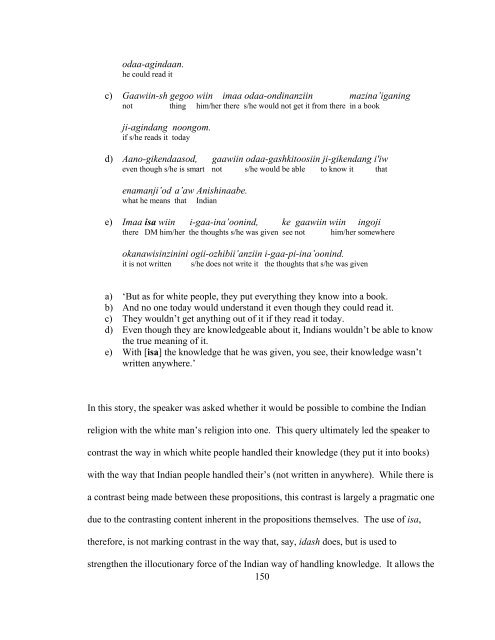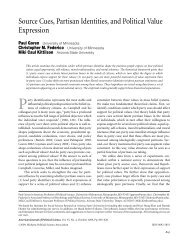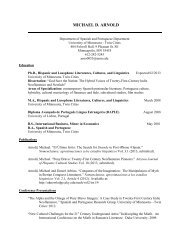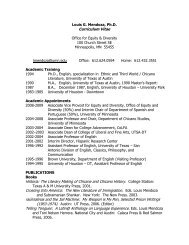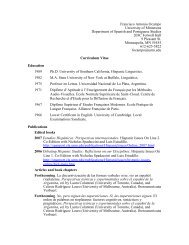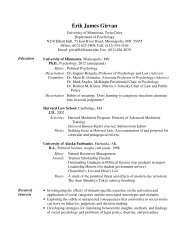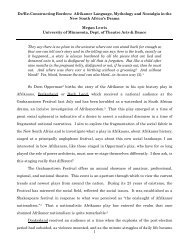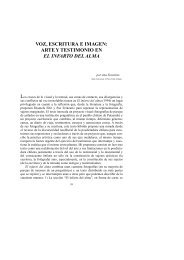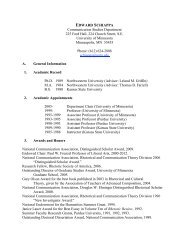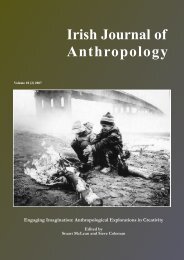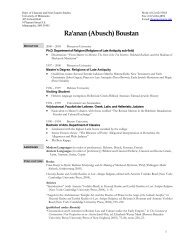A DISSERTATION SUBMITTED TO THE FACULTY OF THE ...
A DISSERTATION SUBMITTED TO THE FACULTY OF THE ...
A DISSERTATION SUBMITTED TO THE FACULTY OF THE ...
Create successful ePaper yourself
Turn your PDF publications into a flip-book with our unique Google optimized e-Paper software.
odaa-agindaan.<br />
he could read it<br />
c) Gaawiin-sh gegoo wiin imaa odaa-ondinanziin mazina’iganing<br />
not thing him/her there s/he would not get it from there in a book<br />
ji-agindang noongom.<br />
if s/he reads it today<br />
d) Aano-gikendaasod, gaawiin odaa-gashkitoosiin ji-gikendang i'iw<br />
even though s/he is smart not s/he would be able to know it that<br />
enamanji’od a’aw Anishinaabe.<br />
what he means that Indian<br />
e) Imaa isa wiin i-gaa-ina’oonind, ke gaawiin wiin ingoji<br />
there DM him/her the thoughts s/he was given see not him/her somewhere<br />
okanawisinzinini ogii-ozhibii’anziin i-gaa-pi-ina’oonind.<br />
it is not written s/he does not write it the thoughts that s/he was given<br />
a) ‘But as for white people, they put everything they know into a book.<br />
b) And no one today would understand it even though they could read it.<br />
c) They wouldn’t get anything out of it if they read it today.<br />
d) Even though they are knowledgeable about it, Indians wouldn’t be able to know<br />
the true meaning of it.<br />
e) With [isa] the knowledge that he was given, you see, their knowledge wasn’t<br />
written anywhere.’<br />
In this story, the speaker was asked whether it would be possible to combine the Indian<br />
religion with the white man’s religion into one. This query ultimately led the speaker to<br />
contrast the way in which white people handled their knowledge (they put it into books)<br />
with the way that Indian people handled their’s (not written in anywhere). While there is<br />
a contrast being made between these propositions, this contrast is largely a pragmatic one<br />
due to the contrasting content inherent in the propositions themselves. The use of isa,<br />
therefore, is not marking contrast in the way that, say, idash does, but is used to<br />
strengthen the illocutionary force of the Indian way of handling knowledge. It allows the<br />
150


